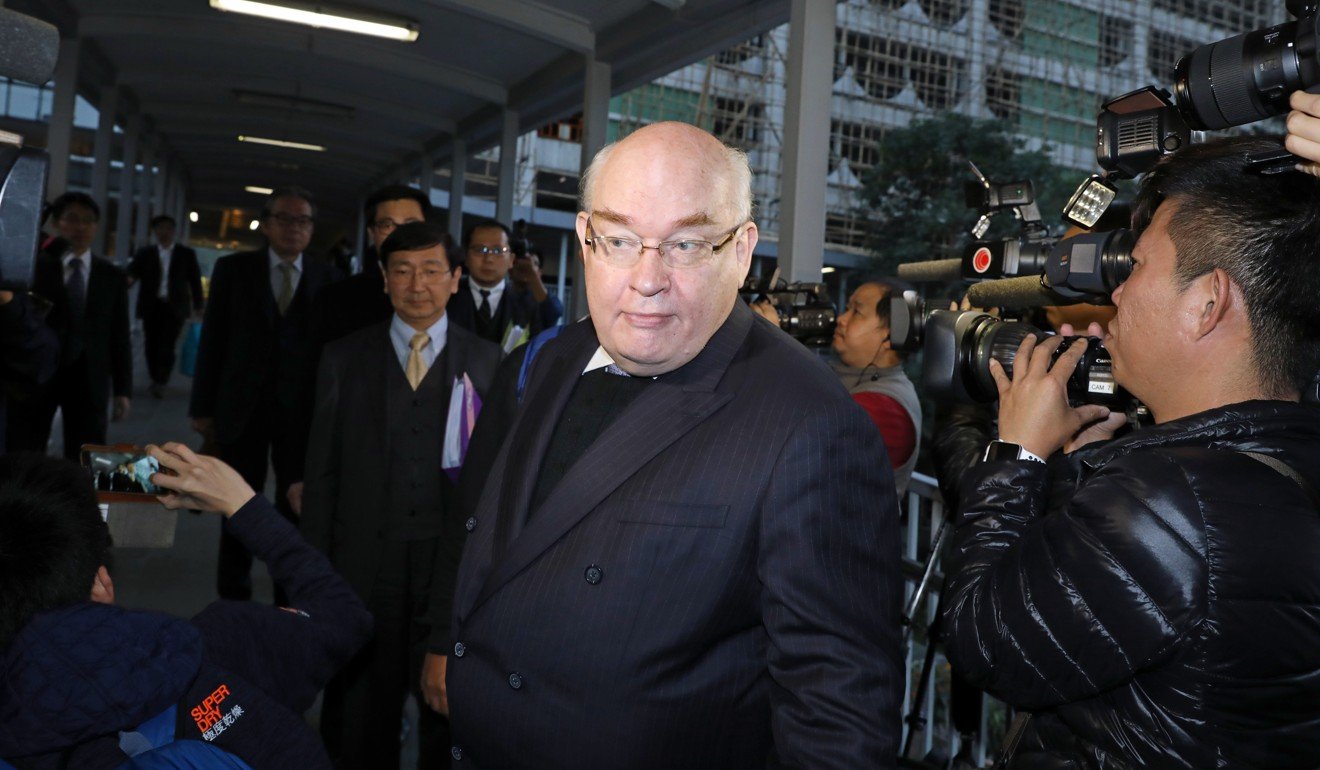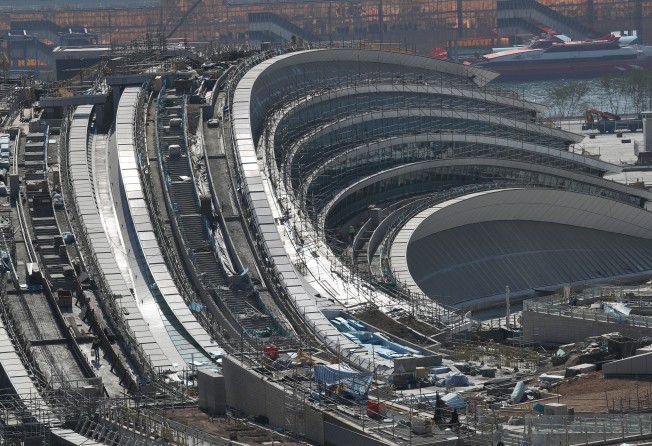
Hong Kong Law Society warns lack of clarity on joint rail checkpoint could undermine ‘one country, two systems’
Plan will see mainland laws enforced in part of the rail terminus in Hong Kong

The Law Society of Hong Kong warned on Thursday that the lack of a clarification on the legal basis of the controversial joint-checkpoint plan for the cross-border rail link risked undermining the Basic Law and the “one country, two systems” principle.
The society – a professional body of solicitors – publicly stated its stance and concern for the first time since China’s top legislature, the National People’s Congress Standing Committee (NPCSC), approved the joint customs arrangement for the Guangzhou-Shenzhen-Hong Kong Express Rail Link on December 27.
The so called “co-location” plan allows mainland officials to enforce national laws in the “mainland port area”, which will take up one-fourth of the West Kowloon terminal and is “deemed as the mainland”.
According to Article 18 of the Basic Law, the city’s mini-constitution, national laws that are not included in Annex 3 cannot be implemented in Hong Kong.
On December 28, Hong Kong’s Bar Association released a strongly-worded statement, saying it was “appalled” by the decision made by the NPCSC, that the move was the most retrograde step since 1997, and that the Basic Law was being “irreparably breached” and the rule of law “severely” undermined.
The Law Society broke its silence on Thursday, as the Bar Association was choosing its new leadership between the incumbent council chaired by Paul Lam Ting-kwok and a contesting team led by human rights lawyer Philip Dykes, who has said the barristers’ group should have stated its stance on the row earlier.

In its statement, the Law Society said “one country, two systems” was a unique concept that allowed two different legal systems to coexist while the distinctiveness of the common law tradition should be maintained in the city under the Basic Law.
It said the council of the society recognised the social and economic benefits of the rail link, but it believed it was in the interest of Hong Kong that the legal basis for the co-location plan be clarified.
The society said while the Hong Kong government was of the view that the plan was consistent with China’s constitution and the Basic Law, the legal issue was whether the application of national laws in a mainland port area was consistent with the rule of law under the common law system and the mini-constitution.
“Hong Kong is accustomed to decision-making under the common law where judicial decisions provide comprehensive reasons explaining how they are reached.
“If the approach is different or perceived to be different for decisions of the NPCSC, this risks undermining the Basic Law and the principle of ‘one country, two systems’,” the statement said.
The society urged the Hong Kong government to clearly convey the concern to mainland authorities “so that the legal basis for the co-location arrangement under the Basic Law may be clarified”.
The Hong Kong government said it took note of the Law Society’s views on the joint checkpoint arrangement.
It said it would continue to carefully consider the community’s views, including the Law Society’s, and “see how best to address public concerns when taking appropriate follow-up action” in proceeding with the joint-checkpoint arrangement.
The Department of Justice has not replied to the Post’s inquiries.